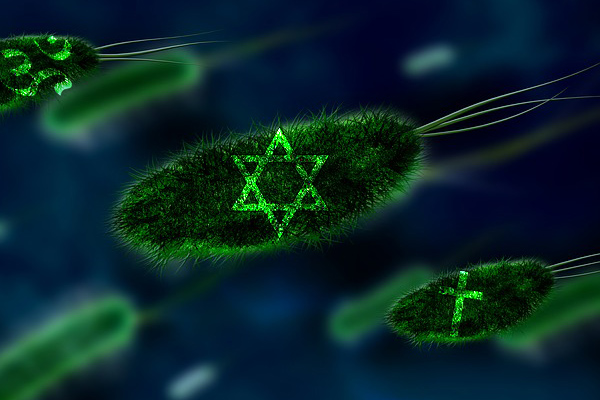
New study may find that microbes and bacteria have influenced religious rituals all along. The social implications are astronomical.
There has been a variety of interesting debates and studies that have sought to outline the reasons that people engage in religion. This has resulted in many different disciplines of science coming together to look at the chemical and social causes of religion. While the social contexts of religion have been explored many times before, the new hypotheses that tie them to chemistry and biology are incredibly interesting but ultimately misleading at first.
Religious Microbes
The concept may sound familiar to those who have watched certain science fiction movies, but there have been many studies and hypotheses developed that attempt to link microbes in your body to a pro-religious disposition. In essence, Alexander Panchin and his other colleagues have theorized that the “impulse behind some religious rituals could be driven by mind-altering parasites.”
To many people this sounds absolutely absurd, but there is something to be said about communal practices in religion and their link to shared bacteria. The focus of the study is that many of the religious practices in which people engage promote the sharing of bacteria and microbes. Communal wine and water along with very close proximities in church provide a beneficial environment for bacteria. However, as the scientists suggest, the bacteria could be actually influencing and encouraging people to pursue religious practices for their own evolutionary benefits.
Biological Mind Control
The researchers who are in charge of releasing the study have said that the microbes could form a parasite and host relationship with human beings. This could generate an innate drive within some human beings to seek religious experiences for the sake of perpetuating the reproduction of the microbes. It is important to note that the study is in its initial stages and has not gone beyond being words on a page. The man who came up with the hypothesis notes that it may be proven entirely unfeasible, but if it received any type of traction it could easily change society.
Social Implications
There are some neuroscientists such as Kathleen Taylor who have said that religion could be considered a mental illness in some cases. She has said that the behaviors exhibited by individuals in religions often border upon abuse and have successfully brainwashed people into sharing beliefs out of fear for their lives or safety. In the context of the aforementioned microbe control of human beings, if proven true, could have a significant impact on this evaluation of religion. For the time being, there is only conjecture on the subject, but if a study is ever undertaken, religion may be looked at in an entirely new light.
